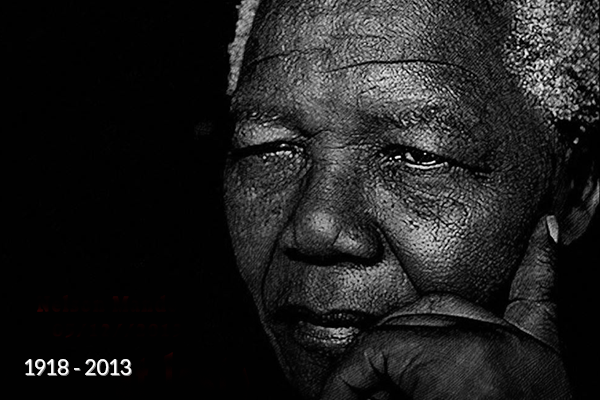
The Religious and Spiritual Beliefs of Nelson Mandela
- By Alison Lesley --
- 09 Dec 2013 --

Last week the passing of Nelson Mandela was announced. Aged 95, he had come from being a prisoner for 27 years to President of his own country. He stood against apartheid – and along with other activists – managed to free South Africa from its grips.
Nelson Mandela was an inspiring man for many reasons. Not only did he keep strong and focused through so much hardship, he showed no bitterness or urge for revenge against the system that kept him prisoner for so long.
Perhaps Mandela’s faith paid a vital role in this. Mandela was a Methodist and his autobiography The Long Walk to Freedom, demonstrated his strong religious and spiritual views of the world.
Mandela was educated in a Methodist school and his father was a priest; this background may well have had an influence on Nelson Mandela’s ability to forgive his oppressors.
The former president spoke in his autobiography about how impressed he was by the work of the church stating that most of the achievements of Africans were made possible because of the missionary work of the local churches.
Out of Adversity comes Compassion
His close friend, Archbishop Desmond Tutu, spoke to PBS about Mandela’s time in prison. He told PBS that the time spent locked away was a time of growth for Mandela. During the lengthy years he was locked behind bars, Archbishop Tutu says that adversity toughened Mandela, making him stronger, but it also made him a more compassionate and gentle man.
Commission on Truth and Reconciliation
Nelson Mandela’s religious views were on display during the Commission on Truth and Reconciliation process – which was set up with Archbishop Desmond Tutu. During this time, Mandela showed forgiveness, even if some of the experiences that blighted his life and the lives of many others could never be forgotten.
Mandela’s Spiritual Outlook
As well as being a man of strong faith, Nelson Mandela also had a firm spiritual outlook, which was a no doubt something that kept him strong through his years of incarceration and chopping rocks at Robben Island. Mandela believed in “Ubuntu” – an African spiritual concept.
Mandela once said that if a man was without food and drink, the villagers would provide for him; he also explained that the concept of Ubuntu should not mean that people should not stop enriching themselves, but when they do, it should be to allow the surrounding community to improve as well.
Bahá’í worshippers in South Africa are holding a children’s party to introduce youth to Mandela’s legacy and to celebrate him.
A representative from the religion, Hannah Mangenda, said, “The biggest ideal that we identify in him, that is really the fundamental basis of the Baha’i faith, is unity and diversity. So the idea of not judging each other because of our colors, backgrounds, religions, age, sex; all of these things and I think that is something he exemplified.”
Interfaith services were held Sunday, during South Africa’s National Day of Prayer.



















3 comments
Alison Lesley
12:00 pmWhy have you written so much about Mandela’s religious beliefs, but also left out so much of the Truth? And you know that you have left out truths in order to psyche out people and make fools of them. And I will not comment any further on this website, because I have much information coming out on the REAL truth about his religious and spiritual beliefs. And I WILL inform the public that YOU are not to be trusted with regards to Mandela and religion. You all are deceivers of truth. — Rev. George Brooks
Alison Lesley
12:00 pmRev. George Brooks – I welcome you to express what you mean by “REAL truth.” Without definition and explanation, your accusations are harsh and meaningless. Let’s begin an intellectual discussion.
Alison Lesley
12:00 pmI will not hold my breath waiting for my comment to be published, because you are not going to, for you are not truth seekers and speakers, but deceivers and liars. — Rev. George Brooks.